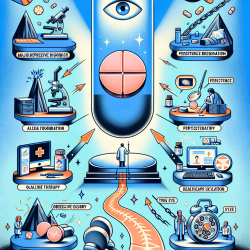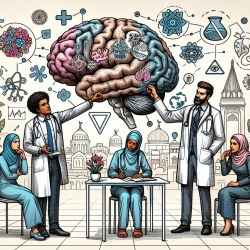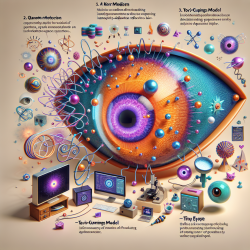The intersection of technology and medicine is a rapidly evolving frontier that holds immense potential for transforming healthcare delivery. The concept of the "technological singularity," where machines surpass human intelligence, promises to revolutionize medical practice and education. The University of Alberta's course, "Technology and the Future of Medicine," offers a pioneering approach to understanding and integrating these advancements into the medical field.
The Course Structure and Philosophy
This innovative course was developed by a multidisciplinary team of experts from various fields, including medicine, science, engineering, and arts. It began as a continuing medical education course and has evolved into an accredited graduate-level program. The course's philosophy emphasizes a balance between technological advocacy and skepticism, encouraging students to explore both the potential benefits and challenges of emerging technologies in medicine.
Lectures cover a wide range of topics such as artificial intelligence, nanotechnology, quantum biology, and medical ethics. These subjects are introduced early in the curriculum to provide students with a solid foundation before delving into more specialized areas. The course also includes a global health perspective, addressing how technology can benefit marginalized populations.
Innovative Teaching Methods
The course utilizes video teleconferencing to bring guest faculty from around the world into the classroom. Lectures are recorded and made available on YouTube, complete with clickable tables of contents that allow viewers to navigate directly to their topics of interest. This approach not only enhances accessibility but also provides valuable data through YouTube analytics to refine teaching strategies.
Student engagement is further fostered through interactive discussions and presentations. Each student selects a faculty mentor and prepares a paper on a relevant topic, which forms a significant part of their grade. This method encourages students to critically analyze technological impacts on medicine and propose innovative solutions.
Quantum Biology: A Case Study
One particularly intriguing topic covered in the course is quantum biology. While still an emerging field, it explores how quantum mechanics may play a role in biological processes. For instance, research suggests that quantum coherence might be involved in photosynthesis and cellular interactions. Understanding these principles could lead to groundbreaking advancements in medical treatments and diagnostics.
Implications for Practitioners
For practitioners looking to stay ahead in their field, engaging with courses like "Technology and the Future of Medicine" can provide invaluable insights into upcoming technological shifts. By understanding concepts such as artificial intelligence and quantum biology, practitioners can better anticipate changes in healthcare delivery and patient management.
Moreover, these courses encourage interdisciplinary collaboration, equipping practitioners with diverse perspectives that can enhance problem-solving skills and innovation. As technology continues to evolve rapidly, staying informed through continuous education will be crucial for maintaining excellence in medical practice.
The integration of technology into medicine is not merely about adopting new tools but involves rethinking traditional approaches to healthcare delivery. By embracing these changes proactively, practitioners can contribute to shaping a future where technology enhances human health and well-being.
To read the original research paper on this transformative course, please follow this link: Bridging the Gap between the Technological Singularity and Medicine: Highlighting a Course on Technology and the Future of Medicine.










